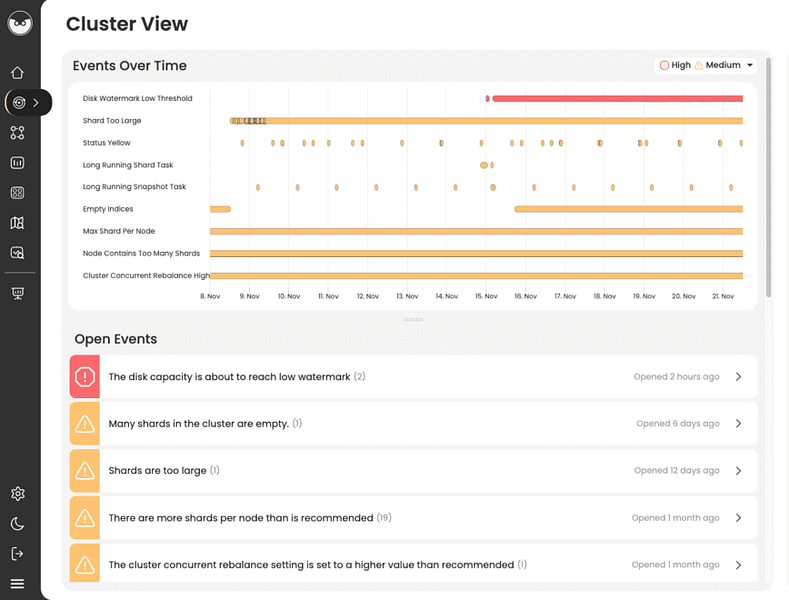Opster Team
Last updated: Sep 19, 2022
| 1 min readIn addition to reading this guide, we recommend you run the Elasticsearch Health Check-Up. It will detect issues and improve your Elasticsearch performance by analyzing your shard sizes, threadpools, memory, snapshots, disk watermarks and more.The Elasticsearch Check-Up is free and requires no installation.
Overview
Upgrade refers to migrating your Elasticsearch version to a newer version. An upgrade of an existing cluster can be done in two ways: through a rolling upgrade and through a full cluster restart. The benefit of a rolling upgrade is having zero downtime.
Common problems and important points
- The major problem with upgrades is version incompatibility. Elasticsearch supports rolling upgrades only between minor versions. You need to make sure to go through the official documentation to see if your cluster can support a rolling upgrade, otherwise a complete reindexing is required.
- Once you upgrade an Elasticsearch node, a rollback cannot be done. You need to make sure to backup your data before an upgrade.
- Elasticsearch continuously removes or deprecates some of its features with every release, so keep an eye on the change logs of each version before planning an upgrade.
- While doing a rolling upgrade, it is important to disable shard allocation before stopping a node and enable the shard allocation when node is upgraded and restarted. This process helps in avoiding unnecessary IO load in the cluster.
How to easily upgrade versions
To upgrade Elasticsearch versions without risking data loss, you can use Opster’s Multi-Cluster Load Balancer. The MCLB enables version upgrades with no downtime and upgrading from significantly older versions to new ones (such as bringing your Elasticsearch from v1 to v7 for instance).
With Opster’s Load Balancer, you can mirror data to newer versions of Elasticsearch without disabling the older version. This allows you to improve and adjust data structure and application API calls until all of the data in the new version is present and operational, while staying available the entire time.
You can learn more about the Multi-Cluster Load Balancer here, and book a demo to try it out.
Related log errors to this ES concept
Find & fix Elasticsearch problems
Opster AutoOps diagnoses & fixes issues in Elasticsearch based on analyzing hundreds of metrics.
Fix Your Cluster IssuesConnect in under 2 minutes

Adam Bregenzer
CTO at Groupsense





